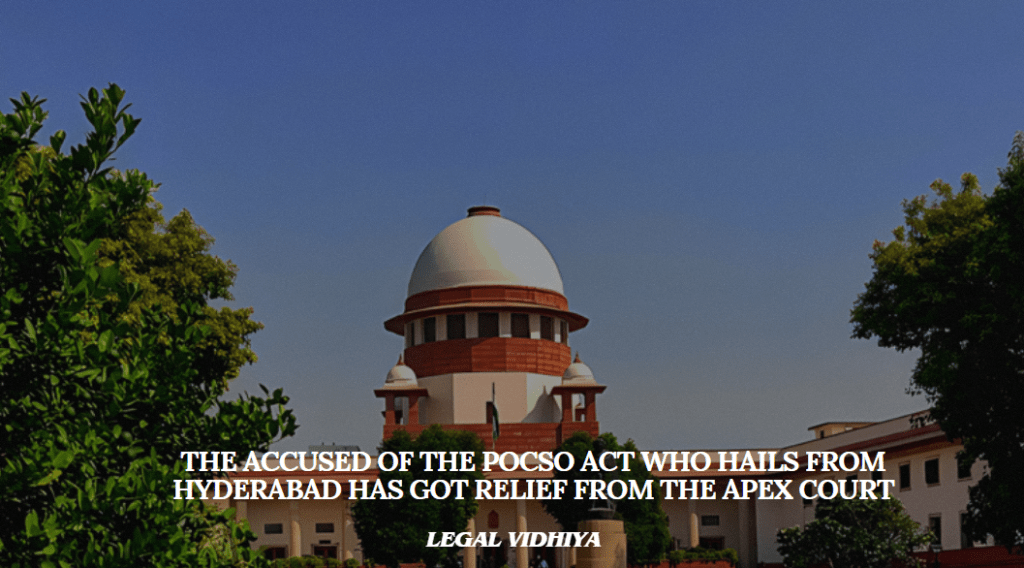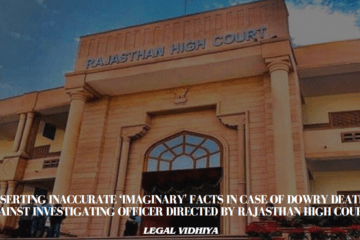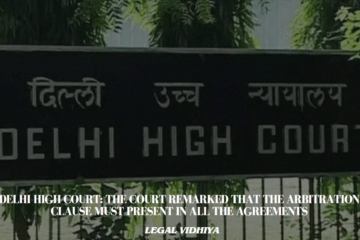
The Supreme Court on 15th May, 2024, Wednesday had given its judgment on the 2023 case of Dasari Srikanth versus State of Telangana.
In this case The Accused Appellant who has been charged by the trial court under the POCSO ACT,2012 ) and at the same time, convicted and sentenced him for offences under Sections 354D and 506-Part I IPC as follows:
i) Under Section 354D IPC: Rigorous Imprisonment for 2 years and a fine of Rs. 1000/-(in default to undergo Simple Imprisonment for one month)
ii) Under Section 506 Part I IPC: Simple Imprisonment for 6 months and a fine of Rs. 500/-(in default to undergo Simple Imprisonment for 15 days).
The High court of Telangana in hyderabad had reduced the charges of the accused Appellant to three months on both counts. A pertinent plea has been raised in this appeal that the appellant and the complainant(victim) have married each other on 6th August, 2023 as per the Hindu rites and customs and that the marriage has also been registered in the Office of Registrar of Hindu Marriages and Sub Registrar, Kodad, District Suryapet, Telangana. An affidavit of the complainant affirming this fact was placed on record. Accordingly, vide order dated 16th April, 2024, we directed the learned Standing Counsel for the State of Telangana to verify the fact regarding the marriage of the appellant and the complainant from the concerned police station.
In this case, after hearing both the sides and seeing the facts and evidences related to the case. The two judge Bench of the Supreme Court comprised of justice B.R. Gavai and Justice Sandeep mehta had mentioned various important points regarding the case in their judgment.
The Apex court while reading their judgment has also mentioned about the mistakes which have been done by the trial court while handling this case. The Court said “ As is evident from the record, the appellant was initially charged for the offences under Sections 354D and 506 of IPC and Section 11 read with Section 12 of POCSO Act. However, the learned trial Court did not find the offences under the POCSO Act proved and acquitted the accused appellant from the said charges.”
The Court had also mentioned several points regarding the case which are as follows :
- The offences under Section 354D IPC and Section 506 IPC are personal to the complainant and the accused appellant. The fact that the appellant and the complainant have married each other during the pendency of this appeal gives rise to a reasonable belief that both were involved in some kind of relationship even when the offences alleged were said to have been committed.
- Since, the appellant and the complainant have married each other, the affirmation of the judgment rendered by the High Court would have the disastrous consequence on the accused appellant being sent to jail which in turn could put his matrimonial relationship with the complainant in danger.
- As a consequence, we are inclined to exercise the powers under Article 142 of the Constitution of India for quashing the conviction of the accused appellant as recorded by the learned trial Court and modified by the High Court.
- . As a result, the impugned judgment dated 27th June, 2023 passed by the High Court and judgment dated 9th April, 2021 passed by the trial Court are hereby quashed and set aside. The appellant is acquitted of the charges.
CASE NAME – DASARI SRIKANTH VERSUS STATE OF TELANGANA
NAME- DAKSH SRIVASTAVA,MG.D. GOENKA UNIVERSITY, B.A.LLB, INTERN UNDER LEGAL VIDHIYA.
Disclaimer: The materials provided herein are intended solely for informational purposes. Accessing or using the site or the materials does not establish an attorney-client relationship. The information presented on this site is not to be construed as legal or professional advice, and it should not be relied upon for such purposes or used as a substitute for advice from a licensed attorney in your state. Additionally, the viewpoint presented by the author is of a personal nature




0 Comments